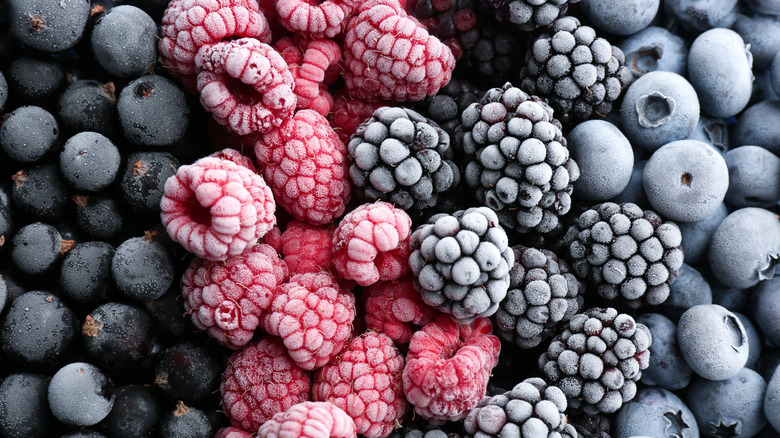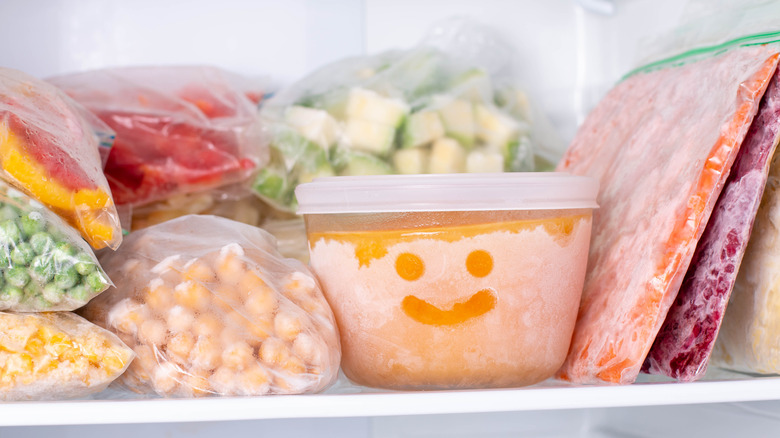The Freezing Technique That Makes Fruit Ultra-Sweet
When most people think of frozen fruit, they probably think of frozen berries that come smoothie-ready in plastic bags or fruit popsicles in summer-forward flavors like mango or lime. However, it turns out that freezing fruit can be more than just a means to enjoy a frozen treat or preserve foods for later. Freezing foods can actually develop flavors and change how ingredients look, feel, and taste. Even more, there's a long history of people using wintry temperatures to store and alter foods.
As Serious Eats explains, people in Northeast China often took advantage of sub-zero temperatures to freeze produce. On top of giving them access to fruits and vegetables year-round (after all, frozen fruit is as nutritious as fresh fruit), the process of freezing and thawing foods like fruits would transform the fruit's texture, sweetness, and juiciness. One noted example are Asian pears, which Serious Eats notes were "frozen and thawed repeatedly until the once-beige skins turn black and the interiors soften and burst with the juices."
The frozen fruit was then turned into a variety of snacks and dishes calling for a sweet and fragrant component. Wondering how you can turn ordinary, even unripe fruit into a decadent dessert? It all starts in the freezer.
Turning your freezer into a culinary tool
Curious about this fruit-freezing technique? The good news is that there are a large variety of fruits that do well frozen. You can easily freeze pears, plums, cherries, apples, apricots, and more. This method is even used in wine-making — the process of freezing grapes before defrosting and fermenting them is called cryo-maceration, which enhances the grape skins' color, tannin, and flavor.
One thing to consider is that the harder the fruit, the more likely it will make a good candidate for freezing, especially if you're planning on eating the fruit whole or incorporating it into desserts, jams, or breads. Some fruits that don't freeze well include more watery varieties like cantaloupe, watermelon, and lemons. Moisture loss and flesh softening will occur with any fruit exposed to freezing temperatures, so it's something to keep in mind when putting fruit into your kitchen's ice cave.
What about other ways to ensure your frozen fruit turns out absolutely divine? The University of Wisconsin-Madison recommends that you pay attention to the type of storage method you're using, since you'll need a container that can seal in the fruit's moisture. Also, if you're not into the idea of fruit browning as it oxidizes, you might also want to consider dipping your fruit in a vitamin C solution to avoid discoloration.

